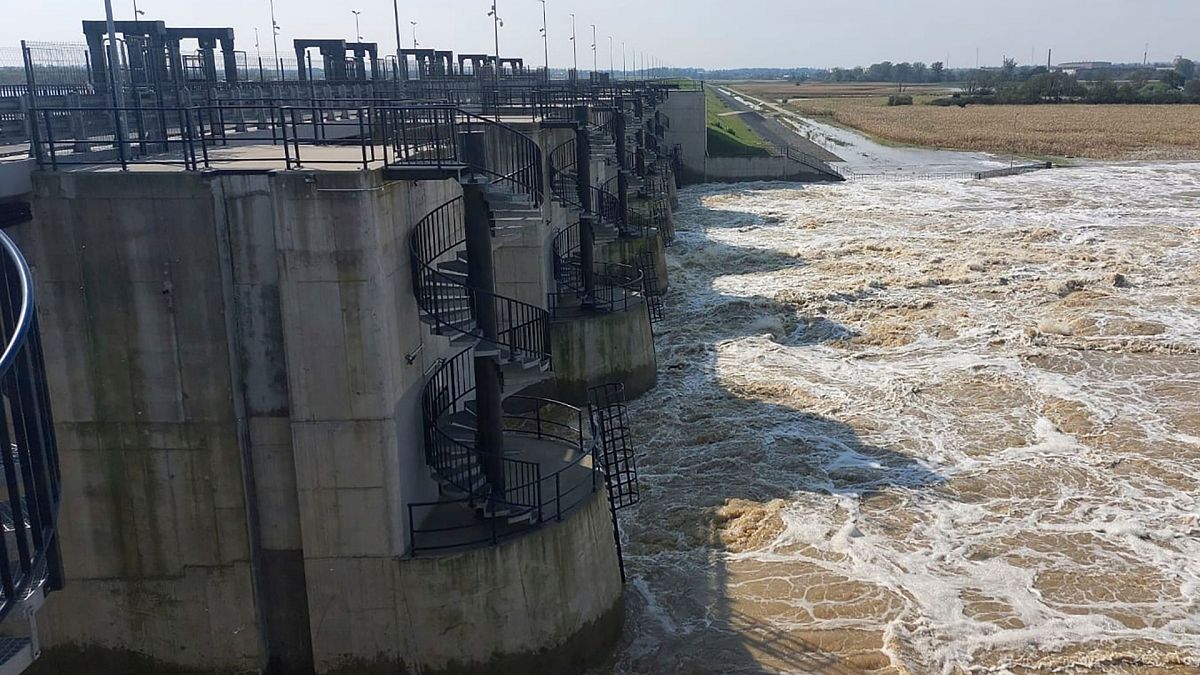Some have suggested the reservoir should be named after famous Polish goalkeeper Wojciech Szczesny.
A floodwater reservoir that spared two Polish cities from the devastation of recent downpours is receiving praise from grateful locals.
Flooding ravaged parts of Central Europe earlier this month, inundating Poland, Romania, Slovakia, Austria, Czechia, Italy and Germany with torrential rain and killing 24 people.
‘National Hero’, the ‘King of Gold’ and ‘Raciborz Reservoir the Great’ are just some of the fond names residents have given to the reservoir that protected the cities of Opole and Wroclaw from Storm Boris.
Some on social media have even suggested that the Lower Raciborz Reservoir floodplains should be named after Poland’s famous goalkeeper Wojciech Szczesny.
Reservoir built following 1997 ‘flood of the century’
Located on the Oder River, the anti-flood reservoir was built following lessons from the 1997 ‘flood of the century’ that devastated the two cities.
It took a decade and some 2 billion zlotys (€469 million) to build and two villages had to be resettled. Part of the funds came from the European Union and the World Bank.
It opened in 2020 on some 26 square kilometres of wildland, and has the capacity to hold 185 million cubic metres of floodwater. It passed the test by effectively flattening the Oder’s giant flood wave as torrential rains inundated Central Europe this month.
Mindful of the 1997 disaster, residents of Opole and Wroclaw watched with apprehension as the river was cresting to the brims – but never spilled into the streets or houses.
Some places not covered by the Raciborz Reservoir system suffered heavy flooding as the amount of rain in just four days equaled a six-month volume.
How are other European cities preparing for floods?
Earlier this month, Storm Boris brought the heaviest ever rainfall recorded across Central Europe by a significant margin, covering an unusually large area.
Despite being well forecast, with various preparations put in place, the storm proved to be deadly – highlighting the need for more long-term protections like the Lower Raciborz Reservoir.
Experts say climate change made the unusual weather event more intense and more likely – and such events could become more frequent in future.
Opole and Wroclaw weren’t the only cities spared by proactive flood prevention measures. Vienna, too, escaped relatively unscathed thanks to its effective flood management system.
Only 15 houses in the city had to be evacuated – proof that investments made following deluges in 2002 and 2013 have paid off.
Vienna’s defence system can handle 14,000 cubic metres of flood discharge per second, meaning it could effectively handle the 10,000 cubic metres unleashed by Storm Boris.
The city’s New Danube flood control channel and artificial Danube Island, built in the 1970s, also helped prevent its main river from overflowing.

